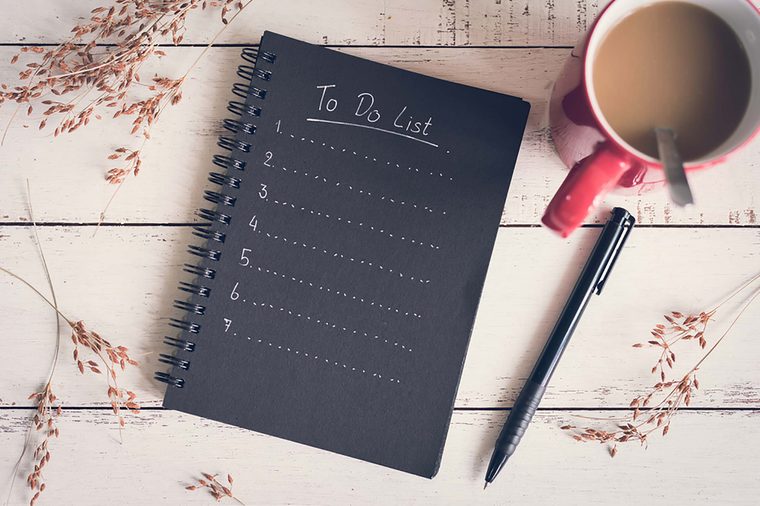
Make a to-do list
If you’re lying awake at night stressing out about everything you have to do in the morning, you’re likely not getting enough sleep. You can get a head start on your busy day by writing down and prioritizing all of the tasks that will require your attention in the morning. You’ll have an action plan before you get into bed, and that will help you feel more in control so you can relax. Set yourself up for sleep success with these 12 science-backed secrets to a stress-free home.
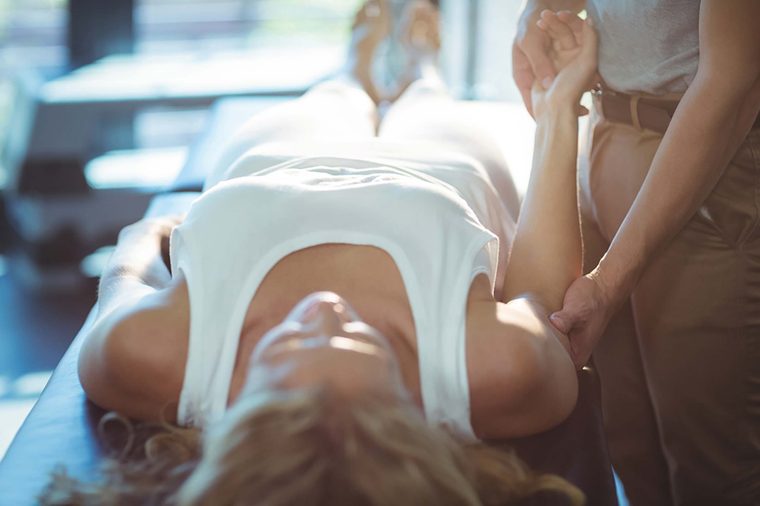
Try DIY acupressure
Acupressure is one of the most effective relaxation techniques. By stimulating certain pressure points in your body you can make yourself feel sleepy, according to Chris Idzikowski, MD, in his book Sound Asleep: The Expert Guide to Sleeping Well. “Put your thumb on the point between your eyebrows at the top of your nose, where there’s a slight indent. Hold for 20 seconds, release briefly and repeat twice more. Next, sit on the edge of the bed and put your right foot across your left knee. Find the slight indent between your big toe and second toe and press in the same way. Finally, still supporting your right foot, find the point just below the nail on the upper side of your second toe. Using the thumb and forefinger of your right hand, gently squeeze the toe.” (Learn the benefits of acupressure mats for treating insomnia.)

Sip some cherry juice
According to research published in the European Journal of Nutrition, study participants who drank two daily glasses of tart cherry juice rested an average of 39 minutes longer than those who did not drink the juice, and also woke fewer times during the night. According to the researchers, the sleep benefits were the result of the high melatonin concentration found in Montmorency cherries.
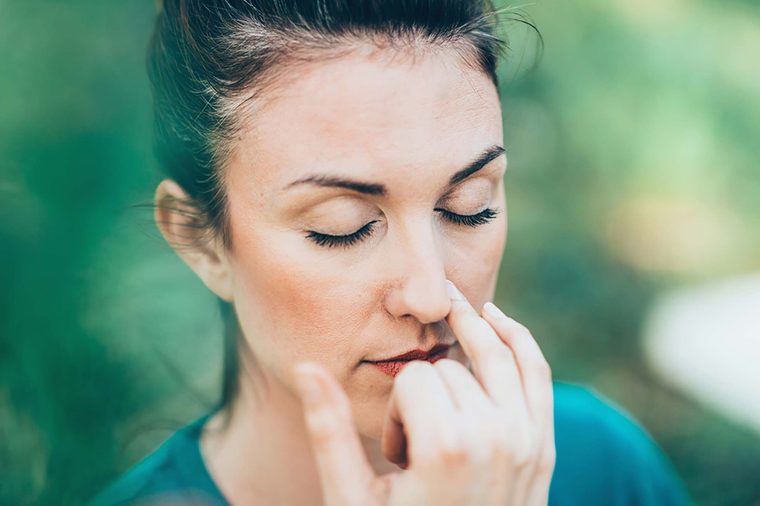
Inhale through your left nostril
According to a study published in 1994, breathing through your left nostril can lower your blood pressure and help you feel more relaxed and calm. To try this breathing exercise, block your right nostril and breathe through the left side only for five minutes.
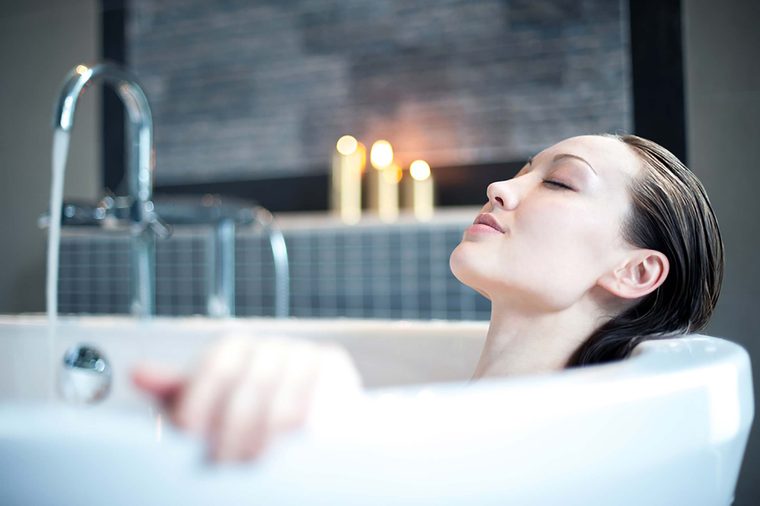
Take a hot bath
A 1997 study conducted by New York Hospital-Cornell Medical Center found that taking a hot bath before bed can help you get to sleep faster. Soaking in a hot tub for half an hour can raise your temperature one to two degrees. When you get out of the water, your temperature rapidly drops back down. It’s that steep drop that promotes a deep sleep, according to the study. Here are the best bath soaks for even better relaxation.

Use essential oils
Most of us are familiar with lavender’s power to induce a sense of calm, but neroli oil, which comes from the blossom of bitter orange trees, was found to reduce stress and blood pressure and promote relaxation in a study published in 2013. The oil’s sleep-promoting effect was amplified when neroli was combined with lavender or chamomile, and the results were more noticeable in women. Here are more essential oils for sleep.
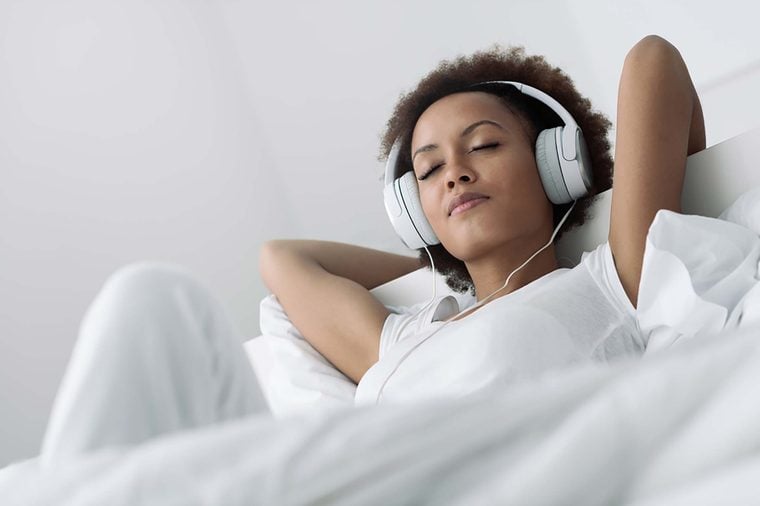
Listen to soothing music
Lullabies aren’t just for babies, according to Sleep.org. Soothing music is a relaxation technique that can help you fall asleep faster, stay asleep longer, and wake up feeling rested. Songs with a slow rhythm work well, as do familiar songs with a rhythm of 60 to 80 BPM. You can check a song’s BPM at songbpm.com. (Here are ways to improve your sleep habits in just one day.)
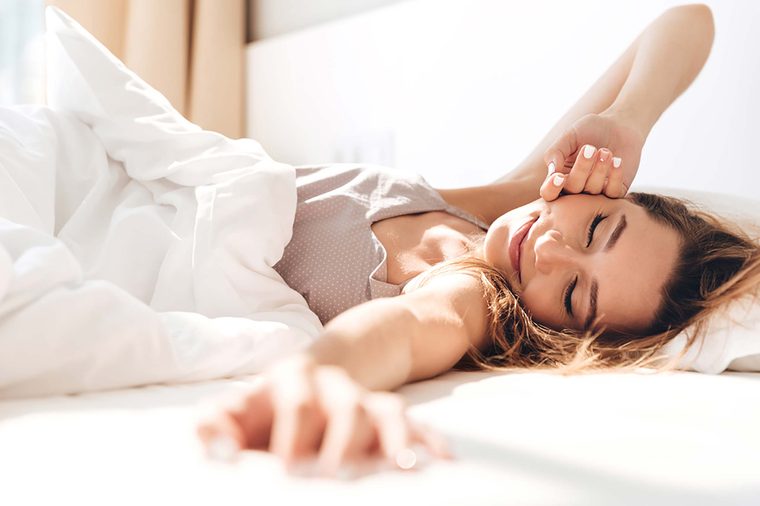
Try a breathing exercise
Dr. Andrew Weil, MD believes that a simple breathing exercise can give you the best sleep of your life. Weil’s technique, called 4-7-8 breathing, consists of five steps.
- Exhale deeply and completely through your mouth.
- Close your mouth and inhale quietly through your mouth for a count of four.
- Hold your breath for a count of seven.
- Exhale deeply and completely through your mouth for a count of eight.
- Inhale again and repeat the cycle three more times.
According to Weil, holding your breath allows oxygen to fill your lungs and circulate through your body, which produces a feeling of relaxation.
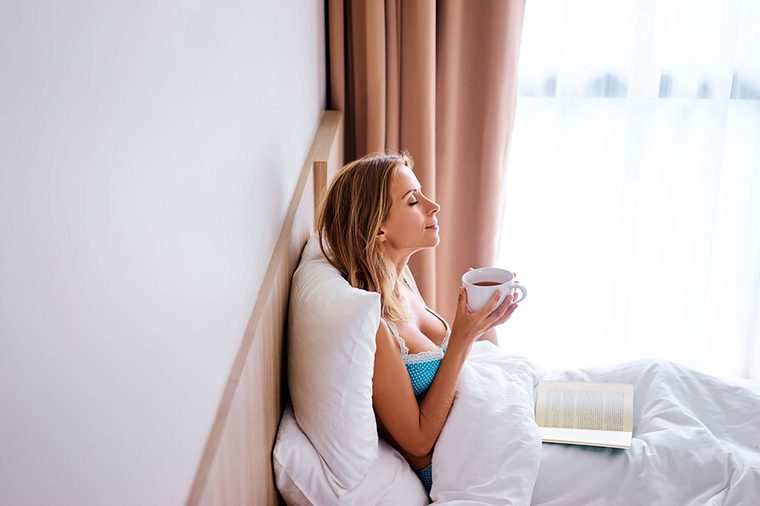
Drink herbal tea
According to a 2011 study, drinking tea that contains passionflower before bed can lead to better sleep. Sipping a warm drink at the end of the day is undeniably soothing, and including it in your nightly bedtime ritual can be a way to signal to your brain that it’s time to wind down. Find out even more benefits of tea.
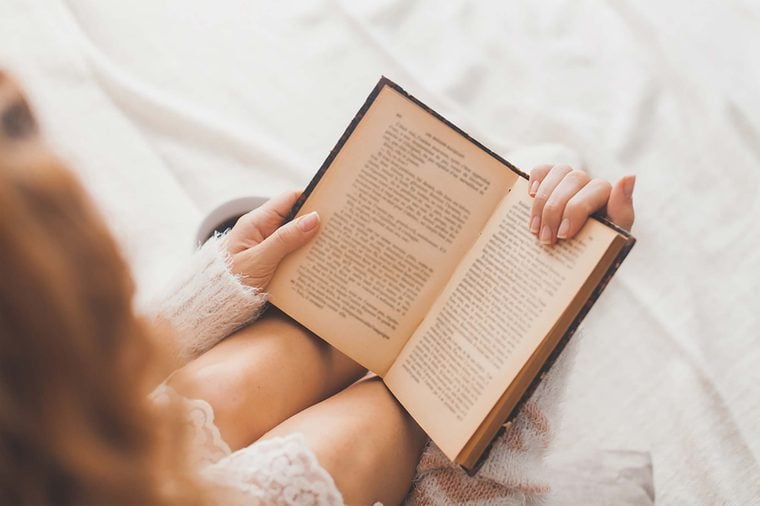
Read a book
The blue light emitted by electronic devices can disrupt Circadian rhythms and melatonin production, making it hard to fall asleep. Consider swapping your nighttime smartphone session with a good old-fashioned book as a relaxation technique. Studies show that as little as six minutes of reading time can reduce heart rate and stress levels, helping you drift off faster. What could be more relaxing than reading one of these meditation books right before you nod off?